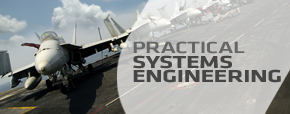
TESTIMONIALS
Description
The course covers techniques needed to develop substantial assembly language programs as found for example in operating system kernel code, metering and measuring equipment, smart sensor systems, motor and engine controllers, byte code interpreters, device drivers and interrupt handlers. Aspects covered include; Macro programming techniques, Use of linkers, Realising state machine and statechart designs in assembler, Implementing circular buffers, realising data structures in assembler, Assembly language programming of on-chip peripherals such as USARTs, I2C and SPI, A/D, Timers, and external interrupts, Programming and uses of PWM (Pulse Width Modulation) and Capture Compare, Real Time clocks, Watch Dog Timers and power conservation programming techniques.Company Benefits
Students successfully completing this course will have a sound understanding of advanced assembly language programming techniques such as Macros and use of Linkers. You'll gain a thorough understanding of working with standard on-chip peripherals as well as interfacing off-chip peripherals (including SPI and I2C devices). You'll learn standard assembly language programming techniques for realising state machines and statecharts and for implementing basic multi-tasking strategies.Content
- Overview of structured programming
- Macros and macro pre-processing
- Libraries, modules and linkers
- Data structures and arrays
- Serial communications protocols and peripherals
- State machines and statecharts
- Layered interrupt handling
- Timers and their uses
- Approaches to multi-tasking, and their implementation in assembler
- Useful peripherals
- Controlling high power devices
- Assembly language realisation of Programmable Logic Controller (PLC) functionality
Who should attend
Attendees should have a good basic understanding of typical small microcontroller architectures and basic assembly language programming skills.Prerequisites
No specific prerequisites have been identified for this course.Related courses
PG-09 :
Programming in C
PG-10 :
Programming in C++
PG-11 :
Advanced C++ Programming
PG-50 :
Advanced C Programming for UNIX and Linux
PG-51 :
Advanced C++ Programming for Unix and Linux
PG-53 :
Introduction to Assembly Programming
PG-55 :
Introduction to C for Embedded Systems
PG-56 :
Advanced C for Embedded Systems




